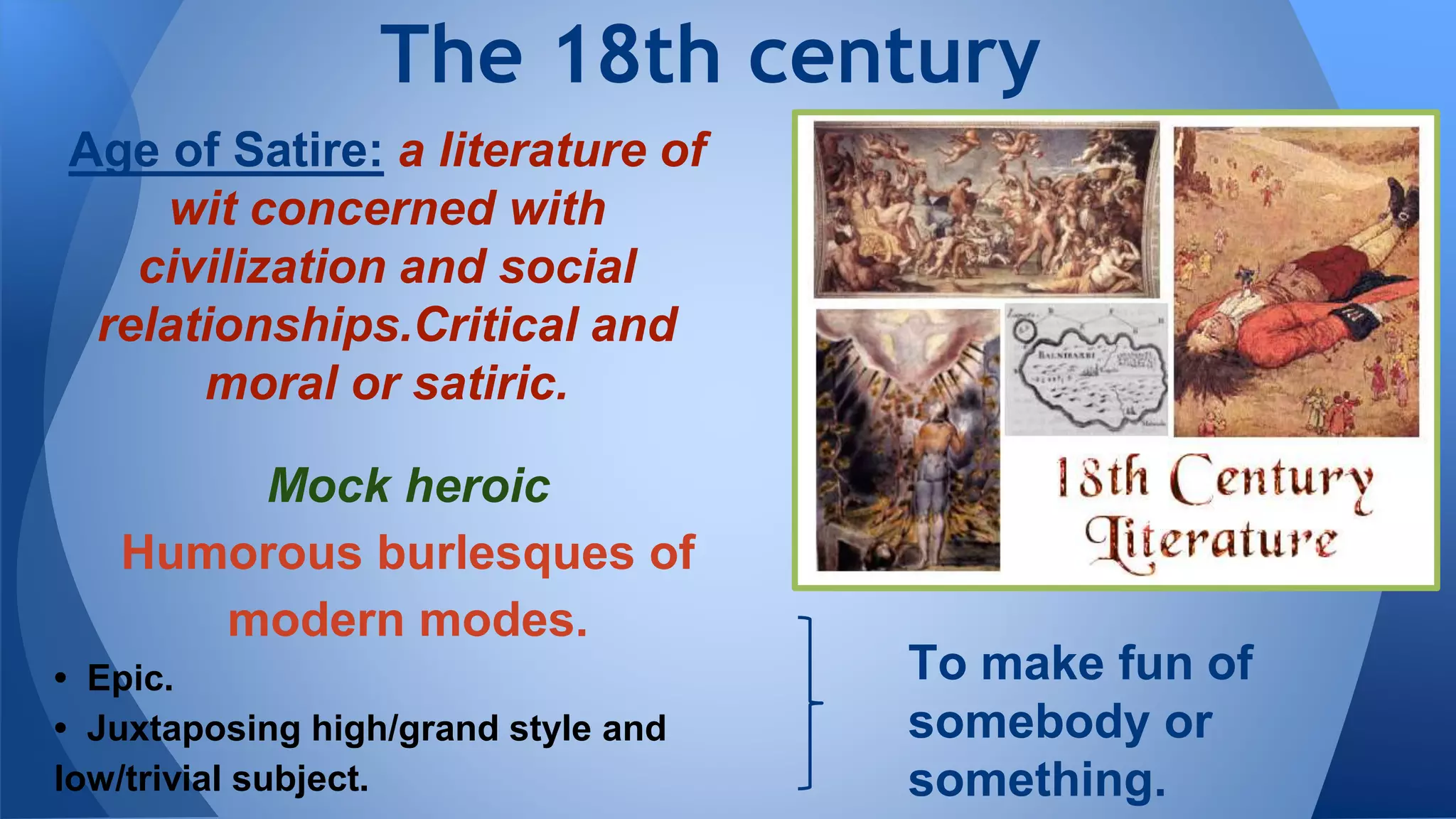English literature from the 16th to 18th centuries was influenced by social contexts and saw developments in genres and styles. Notable writers from this period include Shakespeare, who mastered English language and style and composed plays in blank verse, and Milton, whose works reflected political issues of his day. Satire became popular with writers like Swift and Pope, as did fiction with Defoe's Robinson Crusoe and exploration of themes previously forbidden like sexuality. Overall, this period was one of growth and change as new forms like the novel emerged.













